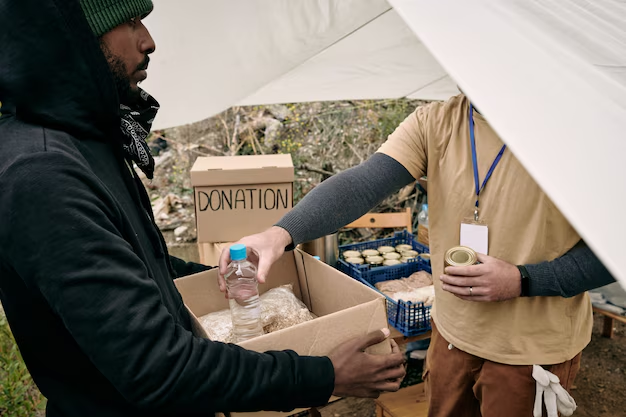Discovering the Good Neighbor Homeless Shelter in Cartersville, Georgia
Cartersville, Georgia, nestled close to the lush Appalachian foothills, is home to a dedicated resource for those facing homelessness: the Good Neighbor Homeless Shelter. This sanctuary plays a pivotal role in the community, offering more than just a roof over one’s head; it provides a pathway to stability and self-sufficiency for individuals and families who have fallen on difficult times.
A Beacon of Hope and Support
The Good Neighbor Homeless Shelter extends a hand to those in need with compassion and dedication. With a commitment to transforming lives, the shelter offers not only temporary housing but also access to essential services that include:
- Personalized Case Management: Each resident receives individualized attention, crafting a plan to tackle their unique challenges and set achievable goals.
- Skill-Building Workshops: To boost self-confidence and employability, the shelter offers workshops that enhance job-seeking, budgeting, and other essential life skills.
- Health and Wellness Resources: The shelter partners with local health care providers to ensure basic medical needs are met, promoting both physical and mental health.
These services play a vital role in helping residents regain control of their lives, setting the stage for long-term success.
Beyond Shelter: Community Support and Resources
While organizations like Good Neighbor Homeless Shelter are critical in offering immediate relief, long-term stability often requires tapping into broader resources. Fortunately, there are numerous government aid programs and financial assistance options available to residents of Cartersville and beyond:
Government Aid Programs
- Supplemental Nutrition Assistance Program (SNAP): Provides low-income individuals and families with funds for groceries, ensuring continued nourishment and health.
- Temporary Assistance for Needy Families (TANF): Offers financial relief for families with children, aiming to foster pathways toward permanent financial independence.
Financial Assistance and Debt Relief
- Local Homeless Prevention Programs: State-funded initiatives that offer rent and utility assistance to prevent eviction and homelessness.
- Credit Counseling Services: Non-profit organizations can offer guidance on managing debts and improving credit scores, providing a foundation for future financial stability.
Educational Opportunities
- Federal Pell Grants: For those looking to continue their education, Pell Grants offer a form of financial aid that doesn’t need to be repaid, assisting students in affording college.
- Workforce Education Programs: State and local organizations provide training in high-demand fields, helping participants secure better employment opportunities.
Building a Brighter Future
While the journey from homelessness to self-reliance can be challenging, knowing the available resources can make all the difference. The cooperation between local shelters, government programs, and community organizations ensures that individuals are equipped not just to survive, but to thrive.
Key Resources for Assistance 📌
- 💵 SNAP & TANF: Financial food and family support
- 🏠 Homeless Prevention Programs: Helps to keep housing secure
- 🔍 Credit Counseling: Improve financial literacy and security
- 🎓 Pell Grants: Support for educational advancement
- 🛠 Workforce Education Programs: Skills for the modern workplace
By focusing on both the immediate needs and future aspirations of their guests, Good Neighbor Homeless Shelter and similar initiatives help transform not just individual lives, but entire communities, creating a ripple effect of positive change.

